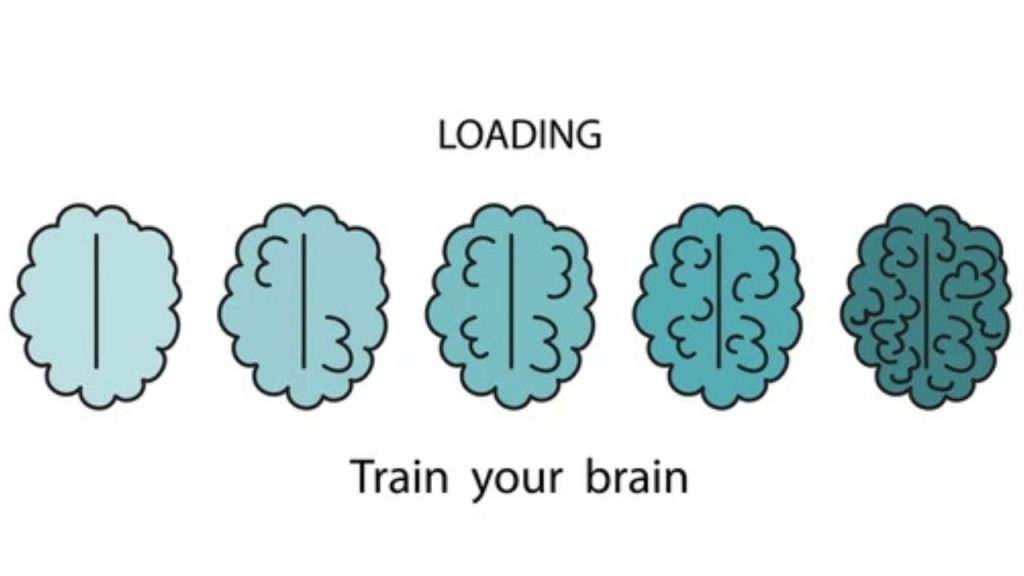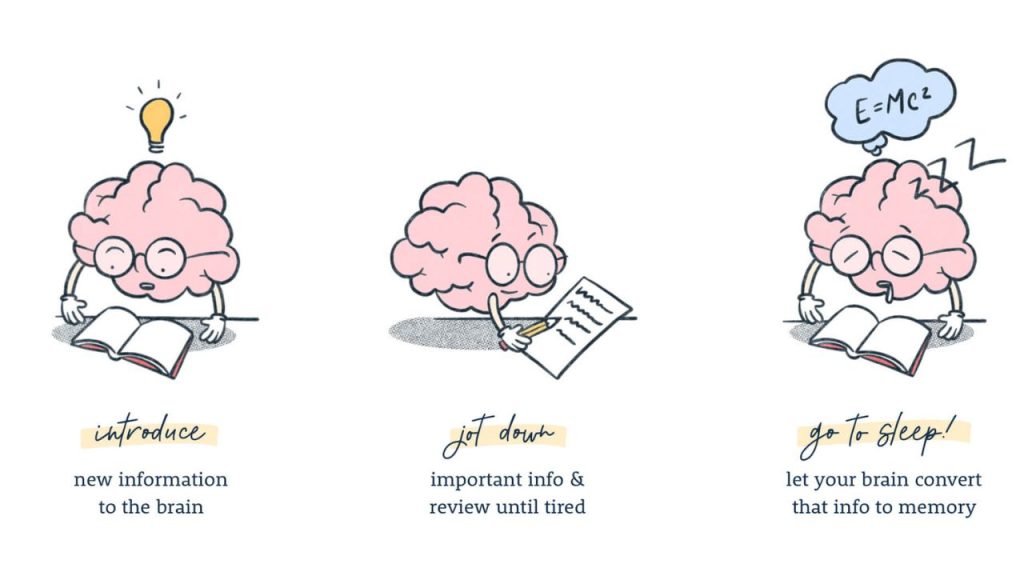18 Ways to Improve Your Memory During Study Time
Memory plays a critical role in effective learning and academic success. Whether preparing for an exam or learning a new skill, optimizing your memory can make studying more efficient and rewarding. This article explores scientifically backed methods and practical strategies to enhance memory during study time.
01.Understanding How Memory Works
Memory is a process by which information is stored, encoded and retrieved. It comprises three stages:
Encoding: Taking in information and converting it into a form that can be stored.
Storage: Retaining encoded information over time.
Retrieval: Accessing stored information when needed.
Understanding these stages is essential because memory-improvement techniques often target one or more of them.

2.Prioritize Sleep for Better Memory
Sleep is a crucial part for memory consolidation—the process of transferring information from short-term to long-term memory. Poor sleep disrupts this process, making it harder to retain what you’ve studied.
Actionable Tips:
Aim for 7–9 hours of sleep each night. Take short naps (20–30 minutes) during study breaks to boost memory retention. Avoid studying late into the night, as it hampers your ability to recall information.
3.Stay Physically Active
Physical exercise improves blood flow to the brain and enhances memory and cognitive function. Aerobic exercises, in particular, stimulate the growth of new neurons and strengthen connections between existing ones.
Actionable Tips:
Incorporate 30 minutes of aerobic exercise, such as walking or cycling, into your daily routine. Practice yoga or stretching exercises to reduce stress and improve focus during study sessions. Click here
4.Use Active Recall Techniques
Active recall involves is a better way to retrieve information from memory rather than passively reviewing it. This technique strengthens neural pathways and improves your ability to recall information during exams.
How to Use Active Recall:
After reading a chapter, close your book and write down or recite the main points. You can use flashcards to test your knowledge of key concepts. Practice answering questions without referring to your notes.
5.Practice Spaced Repetition
Spaced repetition is the most technique that involves reviewing material at increasing intervals over time. This method leverages the “spacing effect,” which suggests that spaced-out learning is more effective than cramming.
How to Implement Spaced Repetition:
Use apps like Anki or Quizlet to schedule reviews of your study material. Break your study sessions into smaller chunks spread across days or weeks. Revise old material alongside new content to reinforce connections.
6.Employ Mnemonics and Memory Aids
Mnemonics are memory aids that use patterns, associations, or imagery to help retain information.
Common Mnemonic Techniques:
Acronyms: Create acronyms to remember lists (e.g., “ROYGBIV” for rainbow colors).
Rhymes and Songs: Turn information into rhymes or songs to make it more memorable.
Visualization: Create mental images or stories to link concepts. For example, imagine a “mind palace” where each room contains a specific set of facts.
7.Optimize Your Study Environment
A conducive study environment minimizes distractions and enhances focus, both of which are critical for memory.
Tips for an Ideal Study Space:
Choose a quiet, well-lit area free from distractions like TV or smartphones. Organize your study materials to avoid wasting time searching for them. For maintaining your focus use noise-canceling headphones or ambient sounds.
8.Break Information into Chunks
The brain processes information more efficiently in small chunks. This technique, known as “chunking,” helps you remember large amounts of information by breaking it into manageable pieces.
How to Chunk Information:
Group related concepts together. For example, when learning a new language, study verbs, nouns, and adjectives separately. Use mind maps to organize and connect ideas visually. Summarize long texts into bullet points or short paragraphs.
9.Use Multisensory Learning Techniques
Engaging multiple senses while studying helps reinforce memory by creating stronger neural connections.
Ways to Implement Multisensory Learning:
Combine visual aids (charts, graphs) with auditory explanations. Write notes by hand instead of typing them to engage tactile memory. Teach what you’ve learned to someone else; explaining concepts aloud solidifies understanding.

10.Stay Hydrated and Eat Brain-Boosting Foods
Proper hydration and a nutrient-rich diet are essential for optimal brain function and memory.
Foods That Enhance Memory:
Omega-3 fatty acids: Found in fish, walnuts, and flaxseeds, these support brain health.
Antioxidants: Blueberries, dark chocolate, and green tea can protect your brain cells.
Vitamins: Foods rich in vitamins B, C, and E, such as oranges, spinach, and almonds, improve cognitive performance.
Hydration Tips:
Drink water regularly throughout the day. Must avoid excessive caffeine or sugary drinks, which can lead to energy crashes.
11.Manage Stress Effectively
Chronic stress impairs memory and concentration. Learning relaxation techniques can improve mental clarity and enhance memory.
Stress Management Strategies:
Practice mindfulness meditation to stay focused during study sessions. Take regular breaks to prevent burnout.
Use deep breathing exercises to calm your mind before studying.
12.Leverage Technology Wisely
Digital tools can enhance your memory and make studying more efficient, but they can also be distracting if not used properly.
Recommended Apps and Tools:
Memory Apps: Apps like Lumosity or Elevate offer brain-training exercises.
Note-Taking Tools: Apps like Notion or Evernote help organize and retrieve notes easily.
Pomodoro Timers: Use timers to implement the Pomodoro Technique, which alternates 25-minute study periods with 5-minute breaks.
13.Practice Mindful Reading and Listening
Actively engaging with the material improves comprehension and memory. Passive reading or listening often leads to shallow processing, making it harder to recall information.
How to Be More Mindful:
Ask questions about the material as you study. Summarize each section in your own words. Focus on understanding the “why” and “how” behind concepts, not just the “what.”

14.Use Positive Reinforcement
Rewarding yourself for achieving study goals can boost motivation and make learning enjoyable.
Examples of Positive Reinforcement:
Treat yourself to a snack or a break after completing a study session. Set milestones and reward yourself with something you enjoy, such as watching a favorite show. Celebrate small successes to maintain a positive attitude toward learning.
15.Practice Consistent Review and Application
Memory improves when information is repeatedly reviewed and applied in real-life scenarios.
Ways to Reinforce Learning:
Review your notes regularly, even after mastering the material. Apply learned concepts to practical problems or case studies. Engage in discussions or join study groups to explore different perspectives.
16.Limit Multitasking
Multitasking reduces focus and hampers memory retention. Concentrating on one task at a time improves your ability to process and remember information.
How to Avoid Multitasking:
Turn off your device’s notifications during study sessions. Use apps like Focus@ Will to block distractions. Set a specific goal for each study session and stick to them.
17.Harness the Power of Association
Linking new information to existing knowledge strengthens memory. This technique leverages the brain’s natural tendency to connect related ideas.
How to Use Association:
Relate new facts to personal experiences or familiar concepts. Create analogies to explain complex topics. Use real-world examples to understand abstract theories.
18.Maintain a Growth Mindset
Believing in your ability to improve memory can motivate you to adopt better study habits. A fixed mindset may limit your potential.
Ways to Develop a Growth Mindset:
Embrace challenges as opportunities to learn. Reflect on past successes to boost confidence in your abilities. Focus on effort and improvement rather than perfection. Click here
Conclusion
Improving memory during study time is a multifaceted process that involves lifestyle changes, effective study techniques, and a positive mindset. By incorporating strategies such as active recall, spaced repetition, physical exercise, and mindful learning, you can enhance your ability to retain and recall information. Remember, consistency is key—making small, gradual improvements to your study habits will yield significant long-term benefits.


This post resonates with creative energy! Have you discovered Sprunki Phase? It’s where innovation meets inspiration.